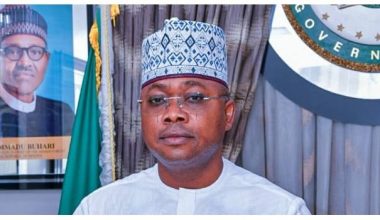By Alhaji Rufai Abdulmalik (Republished)

REMEMBRING H.E AMBASSADOR (ALHAJI) ABDULMALIK IBRAHIM ATTA, CBE NIGERIAS FIRST HIGH COMMISSIONER TO THE UNITED KINGDOM (1914 1969)
By: Alhaji Rufai Abdulmalik
28th August 2019 marks the fiftieth anniversary of the demise of Alhaji Abdulmalik Ibrahim Atta, the distinguished statesman, diplomat and pillar of the Ebira community.
Born in 1914, the oldest child of Atta Ibrahim Onoruoiza (Atta of Ebiraland 1917-1954),
Abdulmaliki was among the pioneer pupils at Makaranta’, the first primary school in Okene at the Okeneba palace of the Atta.
Beginning his education in 1922 along with other foundation students of the Makaranta with contemporaries like late Alhaji Abdulrahaman Okene, he transferred to Bida to complete his primary education (1927-1928). He proceeded to Katsina from Bida in 1929 to attend the famous Katsina College, graduating in 1934.
While in Katsina, he met some of the future pioneering indigenous political leaders of the north and the country, as co-students. The positive impression he made on them, as a gentleman, was instrumental to his later public career.
After college, he returned to Okene where he taught at the middle school between 1934 and 1935 after which he transferred to the services of the Native Authority (N.A) where he held various positions.
He held the post of Wakilin Atta / Chief Scribe of the N.A between 1940 and 1950 before he was appointed to the membership of the Ibadan Conference on Macpherson constitution.
Alhaji Abdulmalik would later pursue a distinguished and pioneering diplomatic career.
In the year he got to the Regional House of Assembly, he was appointed the first Agent General for Northern Nigeria to the United Kingdom and later became the first Nigeria High Commissioner to the United Kingdom until 1967 when he moved to Paris as the Nigerian Ambassador to France.
His diplomatic dexterity was reflected in the remarkable role he played during the period of Nigerias independence struggle, where he served as a vital link between the colonial office and the Nigeria Nationalist Leaders through the pre-independence Conference held in London.
In his capacity as the first High Commissioner to United Kingdom, he had the privilege of delivering the milestone letter from the Queen of England granting Nigeria independence to the Nigerian authorities.
He also lowered the Union Jack (British Flag) and hoisted the Nigerian flag at the Nigeria house in London on October 1, 1960.

It was in recognition of his excellent diplomatic records that the Queen of England honored him with the award of the Commander of the British Empire – CBE.
Alhaji Abdulmalik was an embodiment of many virtues; blessed with a combination of good health, nobility of character, honesty, patience, humility, generosity and spirituality. He did not believe in acquisition of material wealth or in building houses since he devoted the greater part of his life to “building his house in the hereafter” as he often said.

Alhaji Abdulmalik was the 2nd Ebira Muslim to perform hajj in 1947 after his father who went in 1930. He cemented the relationship between Ebiraland and Kaolack in Senegal with the marriage of one of his daughters to Sheikh Niass in 1959. Indeed, many regarded Abdulmaliki as a Saint or WALI stemming from his generosity which extended beyond the confines of ethnicity, age, sex, religion, or kinship.
The magnitude of respect, reverence and affection which Ebira people have for Alhaji Abdulmalik was demonstrated on 28th August 1969 by the shock and grief expressed when the news of his demise forced the popular Okene central market to close prematurely.
Alhaji Abdulmalik popularly known as Mallam Maliki was a man of God, a man of the people and a man of the nation.
His type is rarely produced more than once in the lifetime of a community that is fortunate to have them.
May Allah bless his soul!

